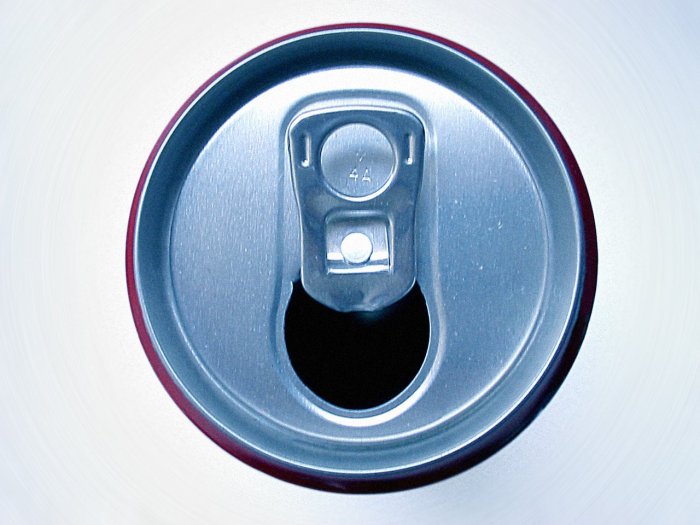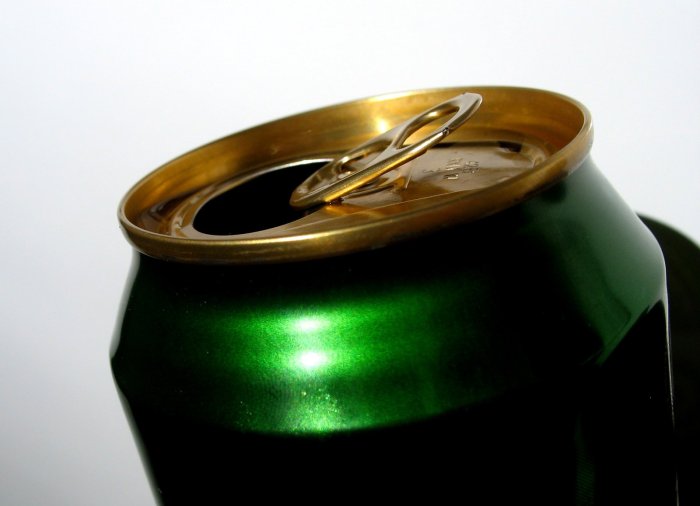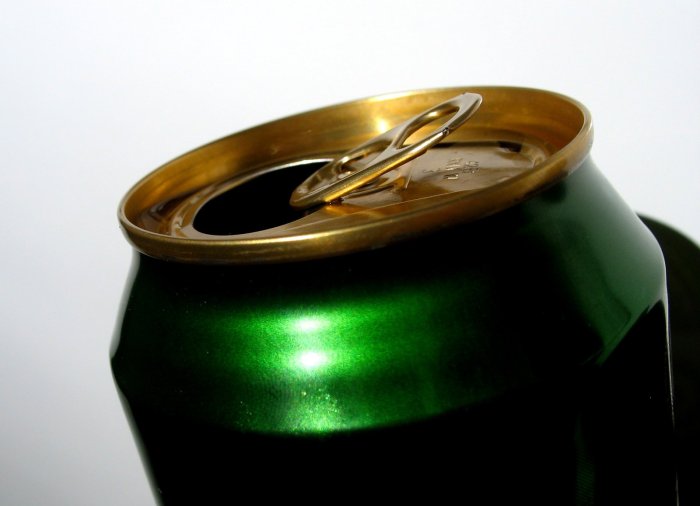Can GERD cause heart palpitations? This is a question that often arises for those experiencing both acid reflux and unusual heart sensations. Understanding the potential link between these two seemingly disparate conditions is crucial for accurate diagnosis and effective management. This exploration dives deep into the possible connections, symptoms, and considerations, helping readers navigate this complex health concern.
Gastroesophageal reflux disease (GERD) involves stomach acid flowing back into the esophagus, causing irritation and discomfort. Heart palpitations, on the other hand, are sensations of a rapid, fluttering, or pounding heartbeat. While seemingly unrelated, certain physiological pathways could connect these two conditions. The following sections will delve into the mechanisms, potential links, and differentiating factors between GERD and heart-related issues.
Defining Gastroesophageal Reflux Disease (GERD)
Gastroesophageal reflux disease (GERD) is a chronic digestive disorder that occurs when stomach acid frequently flows back into the esophagus. This backflow, known as reflux, can irritate the esophageal lining and cause various symptoms. Understanding GERD involves recognizing its causes, common symptoms, and the potential severity of the condition.GERD happens when the lower esophageal sphincter (LES), a ring of muscle at the bottom of the esophagus, doesn’t close properly.
This allows stomach acid to flow back up into the esophagus. Several factors can contribute to LES malfunction, including weakened muscle tone, hiatal hernia (where a portion of the stomach protrudes into the chest), and certain foods or lifestyle choices. In addition to the sphincter’s function, the amount and acidity of stomach acid can also play a significant role in the development of GERD.
Characteristics of GERD
GERD is characterized by frequent episodes of acid reflux. This persistent irritation of the esophagus can lead to a range of symptoms, varying in severity from mild discomfort to significant health concerns. It’s important to understand the mechanisms of GERD to appreciate the impact it can have on daily life.
While GERD can sometimes cause uncomfortable heart palpitations, it’s crucial to understand the complexities of your digestive system. For example, did you know that the health of your colon plays a significant role in overall well-being? Understanding facts about your colon can shed light on potential digestive issues, which could, in turn, affect the heart. So, while GERD might contribute to palpitations, it’s not the only factor, and a thorough understanding of your entire body is key.
Ultimately, consulting a doctor is essential for accurate diagnoses and personalized care regarding potential heart palpitations.
Common Symptoms of GERD
The symptoms of GERD can vary significantly in their frequency and intensity. Some individuals experience occasional mild heartburn, while others experience more frequent and severe symptoms, including pain, difficulty swallowing, and even complications like esophageal ulcers. Identifying the specific symptoms and their severity is crucial for appropriate diagnosis and treatment.
Severity Levels of GERD Symptoms
| Symptom | Description | Frequency | Severity Level |
|---|---|---|---|
| Heartburn | A burning sensation in the chest, often rising from the stomach | Occasional (less than once a week) to frequent (daily) | Mild to Moderate |
| Acid Indigestion | A sour or acidic taste in the mouth, often after eating | Occasional to frequent | Mild to Moderate |
| Regurgitation | The backward flow of stomach contents into the esophagus or mouth | Occasional to frequent | Mild to Moderate |
| Dysphagia (difficulty swallowing) | Difficulty moving food from the mouth to the stomach | Occasional to frequent | Moderate to Severe |
| Chest pain | Pain in the chest that may mimic heart attack symptoms | Occasional to frequent | Moderate to Severe |
Note: The severity levels are subjective and can vary depending on individual tolerance. It’s crucial to consult a healthcare professional for accurate diagnosis and appropriate treatment. Persistent or severe symptoms should be evaluated immediately.
Understanding Heart Palpitations
Heart palpitations, those sudden, noticeable sensations of a racing, fluttering, or pounding heart, can be a source of anxiety for many. They’re a common experience, and while often harmless, it’s important to understand the various types, potential causes, and associated sensations to determine if further evaluation is necessary. This understanding can help you differentiate between concerning and benign heart palpitations.Understanding the different types of palpitations and their potential causes is crucial for evaluating their significance.
Wondering if acid reflux (GERD) can trigger those pesky heart palpitations? It’s a common question, and while a direct link isn’t always clear-cut, it’s important to note that the interplay between digestive issues and heart health is complex. Dr. Phuoc Anne Nguyen PharmD MS BCPS, a highly-regarded pharmacist specializing in medication management, often emphasizes the importance of addressing underlying causes when symptoms like palpitations arise.
Ultimately, if you’re experiencing these symptoms, consulting a healthcare professional like phuoc anne nguyen pharmd ms bcps is crucial for proper diagnosis and treatment plan. This will help determine if GERD is contributing to the palpitations or if another condition is at play.
Knowing the sensations and frequency can provide valuable context when discussing potential triggers with a healthcare professional. This information can help distinguish between benign and concerning palpitations, and guide you in seeking appropriate medical attention if needed.
Defining Heart Palpitations
Heart palpitations are the perception of a rapid, irregular, or forceful heartbeat. They can manifest as a fluttering, pounding, racing, or skipping sensation. These sensations can be quite unsettling, and their intensity can vary significantly from person to person. Important factors include the perceived rhythm, duration, and any accompanying symptoms.
Types of Heart Palpitations and Their Characteristics
Various factors can contribute to heart palpitations. Identifying potential triggers and associated symptoms is key to determining the underlying cause.
| Type of Palpitation | Description | Frequency | Possible Triggers |
|---|---|---|---|
| Rapid Heartbeat (Tachycardia) | A noticeably fast heartbeat, often perceived as racing or pounding. | Can be intermittent or persistent. | Stress, caffeine, exercise, anxiety, medications. |
| Irregular Heartbeat (Arrhythmia) | A heartbeat that feels erratic or skips beats. This can manifest as a fluttering or a feeling of the heart stopping. | Can be occasional or frequent. | Stress, underlying heart conditions, medications, sleep deprivation. |
| Pounding Heartbeat (Palpitations) | A feeling of a forceful or strong heartbeat, often felt in the chest or neck. | Can be sporadic or occur repeatedly. | Anxiety, stress, physical exertion, certain medications, caffeine. |
| Skipped Heartbeat (Extrasystole) | A sensation of a missed or extra heartbeat, often described as a “thump” or “flip” in the chest. | Can occur sporadically or with regularity. | Stress, caffeine, nicotine, electrolyte imbalances. |
Sensations and Physical Experiences Associated with Heart Palpitations
The sensations associated with palpitations can range from a slight awareness of a faster heart rate to a dramatic and frightening feeling of the heart pounding out of the chest. These experiences are highly subjective and can vary in intensity and duration. Often, individuals experience accompanying symptoms like shortness of breath, dizziness, sweating, or anxiety. It’s important to note that these experiences are subjective, so what one person experiences as a significant palpitation, another might perceive as less concerning.
Potential Links Between GERD and Heart Palpitations
While GERD and heart palpitations often present with overlapping symptoms, a direct causal link isn’t always straightforward. Understanding the potential physiological pathways connecting these conditions is crucial for accurate diagnosis and effective management. This exploration delves into the possible mechanisms, highlighting factors that might increase the risk of palpitations in individuals with GERD.
Potential Physiological Pathways
Several physiological pathways could potentially link GERD and heart palpitations. The close proximity of the esophagus and the heart, along with shared nerve pathways, creates a potential for relayed signals. Acid reflux, a hallmark of GERD, can trigger a cascade of responses within the body, potentially affecting the nervous system and leading to heart-related sensations.
Impact of Acid Reflux on the Nervous System
Acid reflux can irritate the esophagus and surrounding tissues, activating sensory nerve fibers. This irritation can trigger a reflex response, potentially affecting the vagus nerve, a crucial component of the autonomic nervous system that regulates heart function. The vagus nerve, in turn, can influence heart rate and rhythm, potentially leading to palpitations. Chronic inflammation and irritation associated with GERD can also contribute to nerve sensitization, increasing the likelihood of abnormal signals being transmitted to the heart.
Contributing Factors Increasing Palpitations Risk
Certain factors can exacerbate the likelihood of experiencing palpitations in individuals with GERD. Anxiety and stress, common companions of chronic health conditions, can heighten the body’s response to irritation, potentially triggering or amplifying palpitations. Dehydration can further exacerbate the irritation caused by acid reflux, making individuals more susceptible to experiencing heart-related symptoms. Additionally, co-existing conditions like anxiety disorders or panic attacks can amplify the perception of palpitations in individuals with GERD.
Potential Links Table
| Potential Link | Description | Supporting Evidence | Alternative Explanations |
|---|---|---|---|
| Acid reflux irritation of esophageal nerves | Esophageal irritation from refluxed stomach acid can stimulate sensory nerves, triggering a reflex response potentially affecting the vagus nerve and heart function. | Studies have shown that acid reflux can cause inflammation and irritation in the esophagus, leading to increased nerve sensitivity. | Other conditions causing esophageal irritation (e.g., infections, allergies). |
| Vagus nerve activation | Stimulation of the vagus nerve by esophageal irritation can influence heart rate and rhythm. | The vagus nerve plays a key role in regulating heart function, and irritation in the esophagus can affect vagal activity. | Direct heart conditions, anxiety, or other factors affecting the autonomic nervous system. |
| Increased anxiety and stress | Chronic stress and anxiety can exacerbate GERD symptoms and increase the perception of palpitations. | Studies suggest a correlation between stress, anxiety, and heightened sensitivity to bodily sensations, including heart palpitations. | Anxiety disorders, panic attacks, or other stress-related conditions. |
| Dehydration | Dehydration can worsen the irritation associated with GERD, potentially increasing the likelihood of palpitations. | Dehydration can lead to increased esophageal sensitivity and exacerbate reflux symptoms. | Other conditions affecting fluid balance or electrolyte levels. |
Differentiating Between GERD Symptoms and Heart Conditions
It’s crucial to distinguish between GERD symptoms and those of heart conditions, as both can manifest with similar sensations. Misdiagnosis can lead to unnecessary anxiety or, in the case of a heart problem, delayed treatment. Careful attention to the specific characteristics and patterns of symptoms can help differentiate them.Identifying the source of discomfort is essential for appropriate medical intervention.
So, can GERD cause heart palpitations? It’s a tricky question, and while a direct link isn’t always obvious, it’s possible that underlying issues like hyperinflation of the lungs hyperinflation of the lungs could contribute to the feeling of a racing heart. Ultimately, it’s best to chat with a doctor to figure out the root cause of any unusual heart sensations you’re experiencing.
Overlapping symptoms can sometimes make it challenging to pinpoint the underlying cause. This section will Artikel key differences between GERD and heart conditions, focusing on common overlapping symptoms and providing guidance on how to distinguish between them.
Comparing GERD and Heart Condition Symptoms
Accurate diagnosis requires a careful evaluation of the symptoms. Symptoms often overlap, making self-diagnosis unreliable. Differentiating factors include the duration, intensity, and accompanying sensations.
Distinguishing Symptoms: A Comparative Table
| Symptom | GERD Association | Heart Condition Association | Differentiating Factors |
|---|---|---|---|
| Burning sensation in the chest (heartburn) | Common and often the primary symptom | Possible, but often accompanied by other symptoms | GERD heartburn typically occurs after eating or lying down. Heartburn with a heart condition might occur at any time and be associated with other symptoms like shortness of breath or sweating. |
| Pain in the chest | Possible, but usually described as a burning or aching sensation in the upper abdomen or chest. | Often described as pressure, tightness, or squeezing, sometimes radiating to the jaw, neck, or arm. | The location and quality of the pain are key. GERD chest pain is typically localized to the upper abdomen. Heart pain can be more widespread and have a constricting quality. |
| Nausea and vomiting | Can occur with severe GERD | Less common, but may be present with certain heart conditions. | GERD-related nausea and vomiting are usually accompanied by heartburn or other digestive symptoms. Nausea and vomiting associated with heart conditions might be more severe and accompanied by other symptoms, such as shortness of breath or dizziness. |
| Shortness of breath | Uncommon, except in severe cases. | Common, often associated with angina (chest pain) | Shortness of breath with GERD is typically mild and related to the reflux itself. Shortness of breath with a heart condition can be severe, sudden, and often accompanied by other symptoms. |
| Sweating | Possible, but usually mild and localized to the chest area. | Possible, especially with a heart attack or other heart conditions | Sweating with GERD is typically mild and not accompanied by other symptoms of distress. Sweating with heart conditions can be profuse and accompanied by other symptoms like dizziness, nausea, or chest pain. |
Importance of Seeking Professional Medical Advice
The table above provides a general overview. It is crucial to consult a medical professional for a proper diagnosis. Self-diagnosis is not recommended. A healthcare provider can evaluate your symptoms, medical history, and conduct necessary tests to determine the underlying cause. This is essential for effective and timely treatment.
Factors Influencing the Relationship

The connection between GERD and heart palpitations isn’t always straightforward. While a direct causal link isn’t definitively established, several factors can influence the likelihood of experiencing palpitations alongside GERD symptoms. Understanding these influences can help individuals better manage their health and seek appropriate medical attention.Individual factors, lifestyle choices, and underlying health conditions can all play a role in the potential interplay between GERD and palpitations.
This exploration delves into these contributing elements, aiming to provide a more comprehensive understanding of the relationship.
Individual Factors
Individual sensitivities and predispositions can significantly affect how the body responds to both GERD and heart palpitations. Genetic factors, such as a family history of heart conditions or digestive issues, may increase the risk of experiencing both simultaneously. Variations in esophageal function, such as the strength of the esophageal sphincter, can impact the severity of GERD symptoms and the likelihood of experiencing associated palpitations.
Lifestyle Factors
Lifestyle choices, including stress and diet, can profoundly affect both GERD and heart health. Chronic stress can weaken the esophageal sphincter, leading to increased acid reflux and GERD symptoms. Similarly, stress can also trigger or worsen palpitations by affecting the autonomic nervous system, which regulates heart rate and rhythm. Diet plays a crucial role in managing both conditions.
Foods that trigger GERD symptoms, like fatty or spicy foods, can also exacerbate palpitations in susceptible individuals. Conversely, adopting a healthy diet and stress-reduction techniques can help mitigate both GERD and palpitations.
Underlying Health Conditions
Other health conditions can influence the relationship between GERD and palpitations. Conditions like anxiety disorders, thyroid issues, or certain types of anemia can manifest with symptoms that overlap with GERD and palpitations. Identifying and managing these underlying conditions is critical to accurately diagnosing and treating the contributing factors.
Table of Influencing Factors
| Factor | Description | Influence on GERD | Influence on Palpitations |
|---|---|---|---|
| Individual Sensitivity | Variations in how the body responds to GERD triggers and palpitations | Can influence the severity of symptoms, ranging from mild discomfort to severe pain | Can affect the intensity and frequency of palpitations |
| Stress Levels | Chronic stress can weaken the esophageal sphincter and trigger palpitations | Increases acid reflux and GERD symptoms | Increases heart rate and potentially triggers palpitations |
| Diet | Certain foods, like spicy and fatty foods, can trigger both GERD and palpitations | Can exacerbate GERD symptoms, increasing frequency and intensity of acid reflux | May contribute to palpitations, particularly in susceptible individuals |
| Underlying Health Conditions | Anxiety disorders, thyroid issues, anemia, and other conditions can overlap with symptoms | May be a contributing factor in some cases | Can be a trigger for palpitations, potentially mimicking symptoms of GERD |
Medical Perspectives and Considerations
Understanding the potential link between GERD and heart palpitations requires a careful and comprehensive approach. Medical professionals must consider the nuanced interplay of symptoms and the possibility of underlying heart conditions. A thorough evaluation is crucial to differentiate between the two and to develop an appropriate treatment plan.Expert opinions generally highlight the importance of a detailed patient history, physical examination, and appropriate diagnostic testing.
This multi-faceted approach is essential for accurate diagnosis and effective management of any potential cardiac or gastrointestinal issues.
Expert Opinions on GERD-Heart Palpitations Correlation
Medical professionals recognize that while a direct causal link between GERD and heart palpitations isn’t definitively established in all cases, there are instances where GERD-related esophageal spasms or acid reflux can trigger symptoms mimicking those of cardiac origin. Some experts believe that the irritation and inflammation associated with GERD can lead to autonomic nervous system dysfunction, potentially contributing to palpitations.
Role of Medical Professionals in Diagnosis and Management
Medical professionals play a critical role in evaluating patients experiencing both GERD symptoms and heart palpitations. This involves a detailed patient history to understand the frequency, duration, and triggers of the palpitations. Physical examinations, including auscultation of the heart and lungs, help identify any concerning cardiac abnormalities. Appropriate diagnostic tests are vital to rule out underlying cardiac conditions.
Common Diagnostic Procedures
Several diagnostic procedures can be employed to evaluate the connection between GERD and heart palpitations. Electrocardiograms (ECGs) are frequently used to assess the electrical activity of the heart. These tests can help identify arrhythmias or other cardiac abnormalities. Ambulatory electrocardiographic monitoring (Holter monitoring) may be recommended for patients with intermittent palpitations to capture the activity over a longer period.
In some cases, esophageal pH monitoring can help confirm the presence and severity of GERD. Further, blood tests may be ordered to assess various markers, including cardiac enzymes, to rule out cardiac issues.
Importance of Seeking Professional Medical Advice
Seeking professional medical advice is paramount for individuals experiencing both GERD symptoms and heart palpitations. Self-diagnosis and treatment can be dangerous, potentially masking underlying cardiac conditions or exacerbating GERD symptoms. Accurate diagnosis and appropriate management strategies are essential for preventing complications and ensuring optimal health outcomes.
Table of Medical Perspectives
| Medical Perspective | Approach | Diagnosis Method | Cautionary Notes |
|---|---|---|---|
| Gastroenterologist | Evaluates GERD symptoms, history of heartburn, and other related issues. | Esophageal pH monitoring, endoscopy | May not be able to fully rule out cardiac causes; referral to cardiologist may be necessary. |
| Cardiologist | Assesses heart health, evaluates palpitations, and potential cardiac causes. | ECG, Holter monitoring, echocardiogram | May not be able to fully rule out GERD as a contributing factor; referral to gastroenterologist may be necessary. |
| Primary Care Physician | Initial evaluation, patient history, physical exam. Determines appropriate referral based on findings. | ECG, basic blood tests, symptom assessment. | Important role in coordinating care between specialists; may need to repeat testing to rule out potential conditions. |
| Multidisciplinary Approach | Collaborative effort between gastroenterologists, cardiologists, and other specialists. | Combination of above-mentioned tests, with focus on detailed symptom analysis and patient history. | Provides the most comprehensive evaluation and management approach, addressing potential contributing factors. |
Management Strategies and Treatments
Managing GERD-related palpitations requires a multifaceted approach that considers both the underlying reflux and any potential contributing factors. Effective strategies often involve a combination of lifestyle adjustments, medication, and, in some cases, further medical interventions. This multifaceted approach aims to reduce reflux symptoms, alleviate palpitations, and improve overall well-being.
Lifestyle Modifications
Lifestyle changes are crucial in managing GERD and its potential impact on heart palpitations. These modifications focus on minimizing triggers and promoting healthier habits. Dietary adjustments are a primary focus, often involving avoiding trigger foods and beverages known to worsen reflux. Regular meals, smaller portions, and avoiding lying down immediately after eating can also contribute to reducing reflux episodes.
Maintaining a healthy weight and regular exercise can significantly impact GERD symptoms. Stress management techniques, such as yoga, meditation, or deep breathing exercises, can play a vital role in reducing both reflux and associated anxiety that can contribute to palpitations.
Pharmacological Treatments
Pharmacological interventions aim to neutralize stomach acid, reduce esophageal irritation, or promote better esophageal emptying. Antacids, such as those containing magnesium hydroxide or calcium carbonate, provide quick relief from heartburn but may not be sufficient for long-term management. H2 blockers, like famotidine and cimetidine, reduce stomach acid production and can help manage mild to moderate GERD. Proton pump inhibitors (PPIs), including omeprazole, lansoprazole, and esomeprazole, are often prescribed for more severe or persistent GERD.
These medications are potent acid suppressants and are generally very effective. However, long-term use of PPIs may carry potential side effects, such as vitamin deficiencies and increased risk of infections. Consult a healthcare professional for appropriate dosage and duration. The selection of specific medications will depend on the individual’s condition and response.
Management Strategies Table, Can gerd cause heart palpitations
| Strategy | Description | Effectiveness | Considerations |
|---|---|---|---|
| Dietary Modifications | Avoiding trigger foods (e.g., fatty foods, chocolate, caffeine), eating smaller meals, and avoiding lying down immediately after eating. | Generally effective in reducing reflux symptoms. | Requires patience and consistency. Individual trigger foods may vary. |
| Weight Management | Maintaining a healthy weight through balanced diet and exercise. | Studies show a correlation between weight and GERD severity. | Requires a holistic approach involving diet and exercise. |
| Stress Management | Implementing stress-reducing techniques like yoga, meditation, or deep breathing exercises. | Stress can exacerbate GERD symptoms, so managing stress is beneficial. | Requires commitment to a regular practice. |
| Pharmacological Treatments (e.g., PPIs) | Using medications to reduce stomach acid production. | Highly effective in reducing reflux and associated symptoms. | Potential side effects, such as vitamin deficiencies and infections, exist. Long-term use should be discussed with a doctor. |
Closure: Can Gerd Cause Heart Palpitations

In conclusion, while a direct causal link between GERD and heart palpitations isn’t always clear-cut, there are potential physiological connections. It’s vital to understand the symptoms of both conditions and to seek professional medical advice for proper diagnosis and management. Ultimately, understanding the factors influencing this potential link, from lifestyle choices to underlying health conditions, is key to effectively addressing and preventing related issues.
This information should not be considered medical advice and is for educational purposes only.




